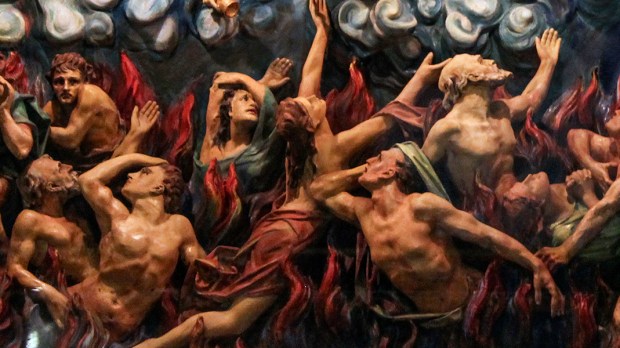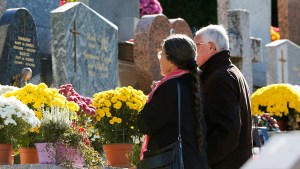“God so loved the world” (Jn 3:16). It truly is a love so tangible, so tangible that he took our death upon himself. To save us, he went there, to where we had ended up, separating ourselves from God the giver of life: in death, in a sepulchre with no way out. This is the debasement that the Son of God fulfilled, bending down to us as a servant in order to take on all that is ours, until opening wide the doors of life.
In the Gospel Christ compares himself to the “serpent lifted up.” The image refers back to the episode of the poisonous snakes, that in the desert attacked the people on the journey (cf. Num 21:4-9). The Israelites who were bitten by the serpents did not die but lived, if they looked at the bronze serpent that Moses, by God’s command, had lifted up on a pole. A serpent saved them from the serpents. The same logic is present in the cross, to which Jesus refers while speaking with Nicodemus. His death saves us from our death.
In the desert the serpents brought about a painful death, preceded by fear and caused by venomous bites. Even to our eyes death always appears to be dark and distressing, just as we experience it, it entered into our world through the devil’s envy, Scripture tells us (cf. Wis 2:24). Jesus however did not flee from it, but took it completely upon himself with all its contradictions. Now we, looking to Him, believing in Him, are saved by Him: “whoever believes in [the Son] may have eternal life” …
~ Pope Francis, November 3, 2015
Prayer:
O Most Blessed Virgin Mary, my Mother, I turn to you in supplication and by that sword which pierced your sorrowful heart at beholding your beloved Son, Jesus Christ, suffer on the cross, I pray and ask thee to help the holy souls in Purgatory.
O Eternal Father through the most Precious Blood of Jesus and through the Sorrows of Mary have pity upon the holy souls in purgatory. Amen.



